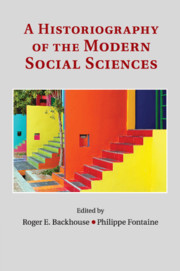6 - Contested Identities
The History of Economics since 1945
Published online by Cambridge University Press: 05 September 2014
Summary
In 2007, when the Australian Bureau of Statistics (ABS) proposed a new classification in which “history of economic thought” was moved from “economics” to “history, archeology, religion and philosophy,” some in the field were up in arms, protesting that this amounted to its destruction (see Kates and Millmow 2008a, b). As most Australian historians of economics are affiliated to economics departments, this change threatened to render their research worthless within their institutions. However, their reaction also reflected a belief that what they were doing fell under the jurisdiction of economics and that it could not therefore be considered a form of the history and philosophy of science.
This episode and others like it point to an identity problem: Most historians of economics are trained as economists and think of themselves as such, but the remainder of the economics profession cannot see the significance of the history of economics for what they are doing. Some historians of economics, such as those who challenged the ABS reclassification, are committed to trying to change this situation while others contend that what they do is a form of history and accordingly feel less concerned about economists’ lack of interest.
Keywords
Information
- Type
- Chapter
- Information
- A Historiography of the Modern Social Sciences , pp. 183 - 210Publisher: Cambridge University PressPrint publication year: 2014
References
Accessibility standard: Unknown
Why this information is here
This section outlines the accessibility features of this content - including support for screen readers, full keyboard navigation and high-contrast display options. This may not be relevant for you.Accessibility Information
- 11
- Cited by
